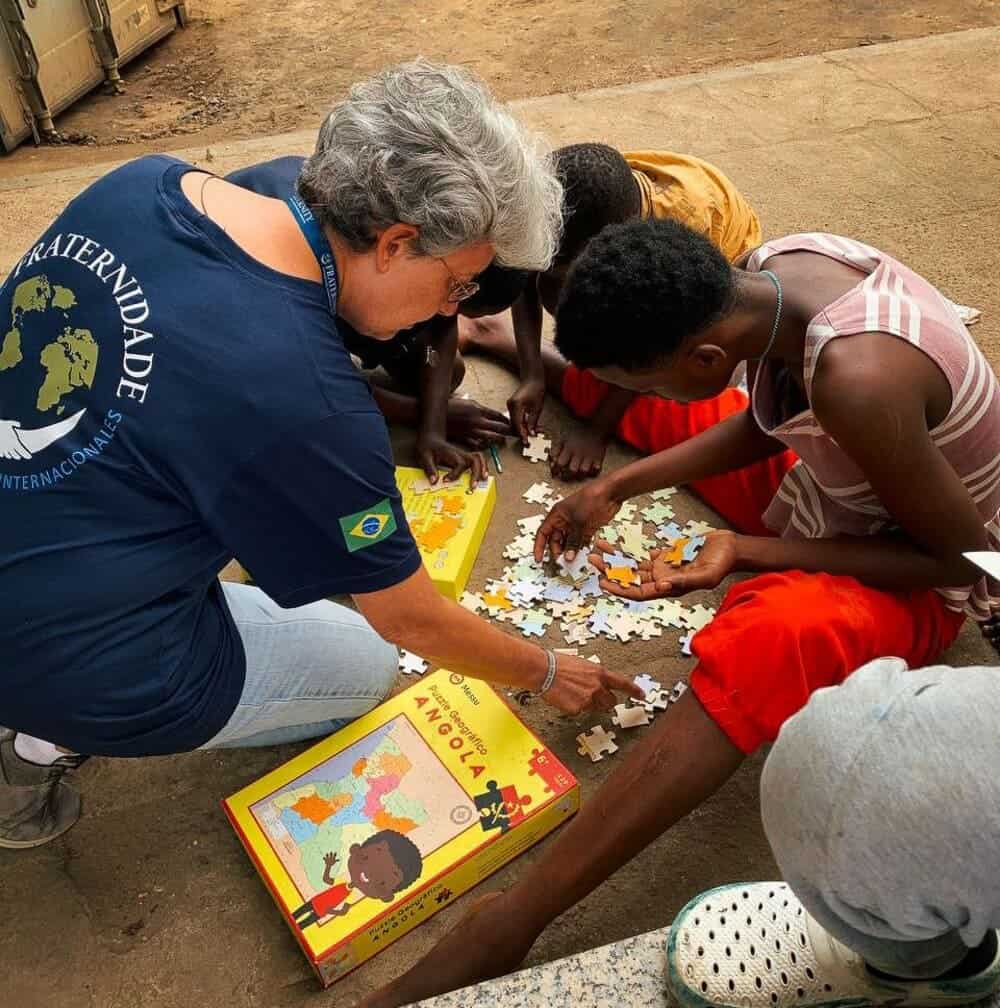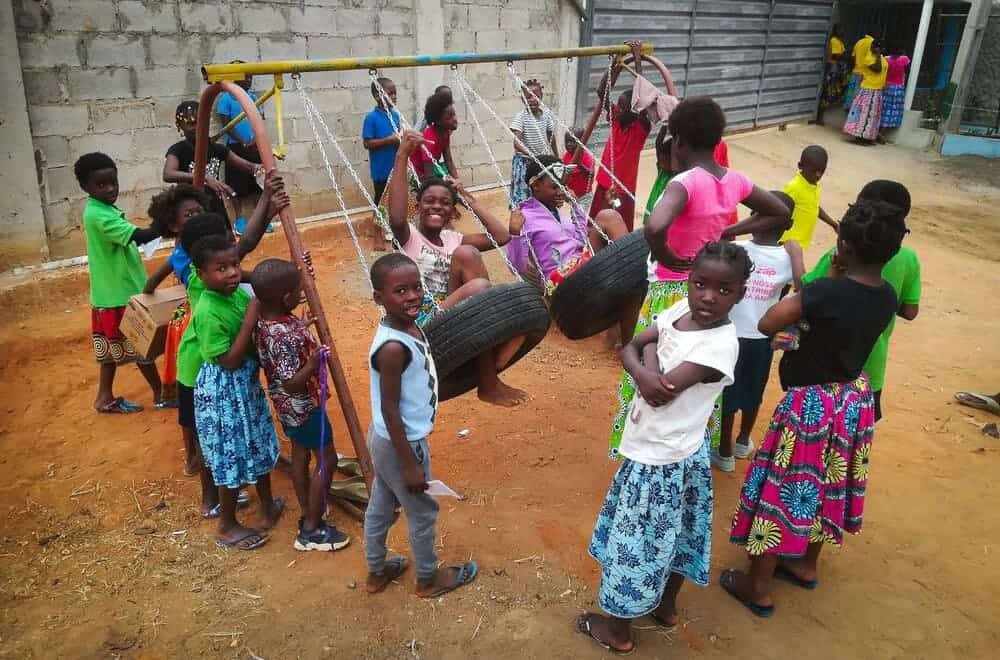With a great deal of creativity and practicality, by recycling materials, the Art-Education Sector developed, through playful strategies, equipment and tools through that benefit the community of the Saint Isabel Children’s Home.
Keeping in mind that playing and learning go hand in hand, the children were given the opportunity of seeing the world in a different way, a world in which everything can be transformed. To find out how the educational activities were developed, David, a humanitarian aid volunteer of the Fraternity – InternationalHumanitarian Federation (FIHF), spoke about his experience in the Mission.

Concerning the pedagogic intervention strategies being used with the children and adolescents of the Saint Isabel Home, David explained that “a strategy for discovering the needs and knowing how to address them is through play, because through play, lots of things can be seen, such as for example, how they interact, or how their culture is, very different from our own. The best way is playing, because it allows us to observe their behavior, and in this way, elaborate a plan of approach to reinforce their strengths and create them where there are none. Through play, easy and simple circumstances are generated which allow reflection and learning; assimilation is much easier if we’re doing something we like, and later, we remember that knowledge, it stays engraved.”
The humanitarian aid volunteer also emphasized that “something very important I thought of, and which is easy to implement, was to transform ‘trash’ into useful objects, such as plastic bottles, discarded car tires, which there are a lot of here. The process flowed and we all started creating. With the tires we made dog beds and planters to hang on the walls.”
The power of transformation
“Things have a different value if one transforms them, and this is a very important process, very symbolic also, because there are some things that, at first glance, we don’t see, we don’t register, because we don’t pay attention to them, but that with a little work, we can transform into something new, change into something beautiful and wonderful. That object was there the whole time, but we hadn’t noticed it. For us it’s also something new, and there are a lot of opportunities to transform things, especially here, and to begin to see things from another point of view, through another perspective,” comments David.

Harvesting the results
David says that “in the short time we’ll be here, we have to use a lot of discernment when choosing what is possible to do, what activities to carry out, and I felt the most important thing was to pass on some tools they could use later. For example, together we fixed some chairs, something very simple to do. In this case, it was only necessary to make some holes with a drill and place some screws, or glue it, and in this way, some chairs were repaired.”
Moreover, from the educational point of view, David says, “we can create situations through a game that is simply the bridge to learn and understand something. Tools can be transmitted through play. I believe the most important part is to pass on this learning so they can use it later.”
To reuse and recycle—taking care of the environment while we play

“We could say it’s an adventure to work with certain things, certain materials, because one comes with an idea or knows how to use tools to fix something, or build something and, before beginning the task, provides oneself with the materials needed. But here it’s very different! We work with what we have and what we find; it’s a great adventure, because it allows us to learn a lot also, get out of the framework of how we used to do it so as to invent other ways,” David says with enthusiasm.
“The materials we use here are car tires that, either we ask for them, or they come through a donation, although some were already here, and also some plastic bottles. These are the materials that, at the moment and for the most part, we are using for recycling. And I believe it’s a great project because lots of ideas emerge for transforming the things that normally, we would have thrown away and that, from another perspective, we can change into something new and very useful,” he concludes.
Psychosocial, emotional and behavioural development of children and young people
“A very, very important key to pass on is how to adapt to the circumstances. I think it’s very important because, in the environment, you find things that you can work with, and applying a little energy, you can build something with them. And I think it’s a great key that will help them in their lives, in any circumstance and in anything they do, even if it’s small. From that point, they can already begin to move forward, and then they’ll find another piece, and another piece, and another… I think this is a very good key for many situations in life,” the humanitarian volunteer instructed us.






